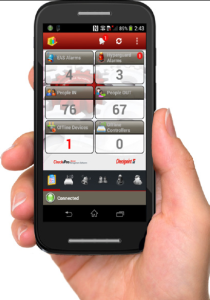 In the past when managers discussed employee theft they mostly talked about the tangibles. They talked about their problems with staff stealing product, supplies and money – the physical things which can be touched and seen.
In the past when managers discussed employee theft they mostly talked about the tangibles. They talked about their problems with staff stealing product, supplies and money – the physical things which can be touched and seen.
They would also discuss the problem of employees “standing around” and not doing their work. However, this conversation was separate from the one about theft, it was about productivity. But, with the arrival of smart phones the issue of productivity can’t be separated from the one of theft. The theft of time, via lack of productivity, is increasing at a rapid rate.
It’s seldom looked at that way because time is an intangible, it lacks physical substance. Its boundaries are blurrier – an employee who would never think of stealing a shirt from the store has no qualms about using company time to buy, on her phone, a shirt from her favorite website.
The idea of who “owns” an employee’s time is an old argument. There have been countless lawsuits and court decisions made over the years, trying to define it. In the last few years there have been several landmark ones in the tech field. On paper it can seem cut and dried, in practice it’s not.
Especially now, when managers are encountering issues they’ve never had to deal with before. The debate of where, how and when people on the job should have access to their phones is a new one, one with strong opinions and feelings on both sides. Companies are struggling with it and most have yet to agree on, develop and enforce clear guidelines.
At this time the issue is simple. A company pays an employee for a block of time, and during that time they have the right to expect (within the labor laws) the worker to give his attention to the duties of the job, not his phone. The business can enact and enforce policies that support this right.
Soon however, it’s going to become much more complicated. Most of us know someone who’s too attached to their phone – a person who is losing or has lost the ability function without it. Individuals who may need professional help to address their obsession (there’s a fierce argument in the medical community as to whether it’s an addiction or not).
In the next few years companies will have to link their phone/workplace access policies with their ADA and Mental Health policies. Therefore, it’s vital that companies develop and enforce basic phone/workplace access policies and procedures now, because it’s only going to get more complicated. Don’t let employees steal your company’s time; after all you paid for it.
Nicole Abbott is a professional writer who’s had over 150 articles published. She’s a business consultant and former psycho-therapist with over 20 years of experience in mental health, business and addiction. She’s a coach, lecturer, trainer and facilitator. She has conducted over 200 workshops, trainings, presentations, seminars and college classes.

Speak Your Mind
You must be logged in to post a comment.